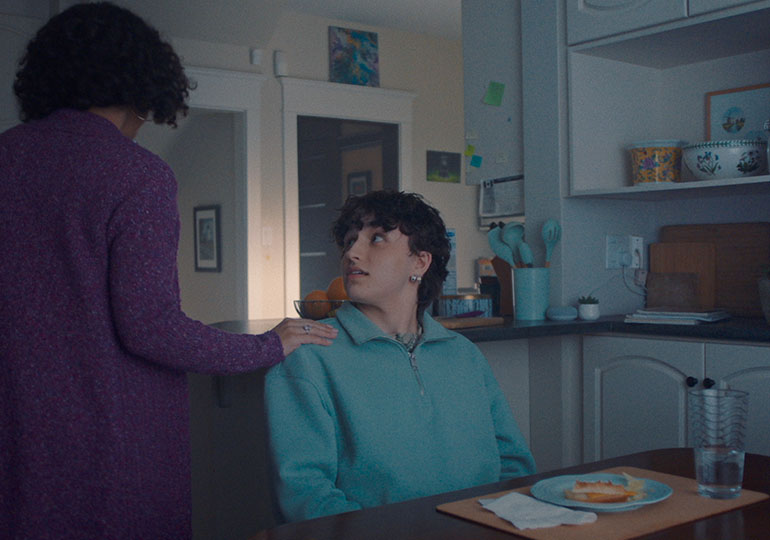Let’s talk about sex! Here, Kids Help Phone shares information about what sex may involve and how you can protect yourself.
Whether you’re thinking about having sex, already sexually active or just curious about what sex may involve, it’s important to have the facts. You may want to consider things like your definition of sex and how you can protect yourself. Remember, you’re in control of your body, and only you can decide if/when you’re ready to engage in sex. You can also choose who you want to have sex with and how.
What does sex involve?
The definition of sex can mean different things to different people. Here are some examples:
- Masturbation: this is when a person stimulates (excites) their own genitals with their fingers, their hand, a sex toy, etc.
- Mutual masturbation: this is when people masturbate together/in front of each other.
- Oral sex: this is when a person’s genitals are stimulated by another person’s mouth.
- Vaginal sex: this is when a vagina is penetrated (entered) by a penis, finger, sex toy, etc.
- Anal sex: this is when an anus is penetrated by a penis, finger, sex toy, etc.
- Sexting: this is when people exchange sexual content (e.g. messages, images, videos, etc.) with each other through technology (e.g. calls, texts, apps, etc.).
- Other intimate contact: this may include things like touching, hugging, kissing or other contact of an intimate, personal nature.
Why do people have sex?
People choose to have sex for many reasons — to feel good, relieve stress, feel closer to a partner, have fun, get pregnant, etc. During sex, you may experience many different thoughts and feelings. You may experience an orgasm (an intense feeling of pleasure) at the peak of sexual excitement.
What do I need to know about safer sex?
It’s important for you and your partner(s) to talk about safer sex. You can have a conversation with your partner(s) about protecting yourselves from sexually transmitted infections (STIs) (e.g. by using a condom, dental dam, etc.) and, if applicable, unplanned pregnancy (e.g. by using a condom and the pill). You can decide together which safer sex practices work best for everyone involved.
Consent (a voluntary agreement to do something) needs to be given by everyone involved in sexual activity throughout an experience. It must be clearly (and enthusiastically) expressed in both words and behaviour. You can chat with your partner(s) about what consent looks like (e.g. saying “yes” and nodding eagerly).
If, when and how you choose to have sex is up to you. If you have questions about sex and/or how to practise safer sex, you can reach out to a doctor/nurse, counsellor or sexual health clinic for more information and support.
























